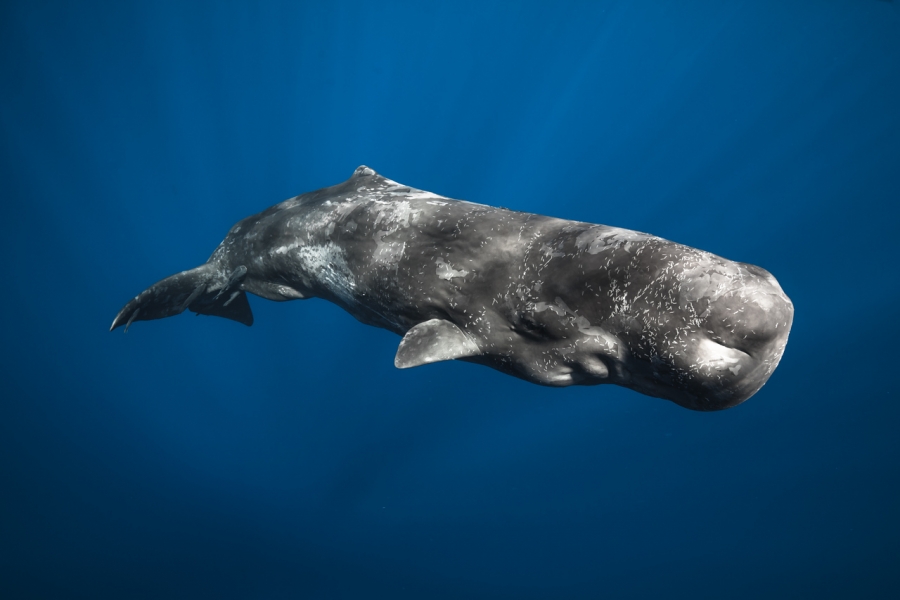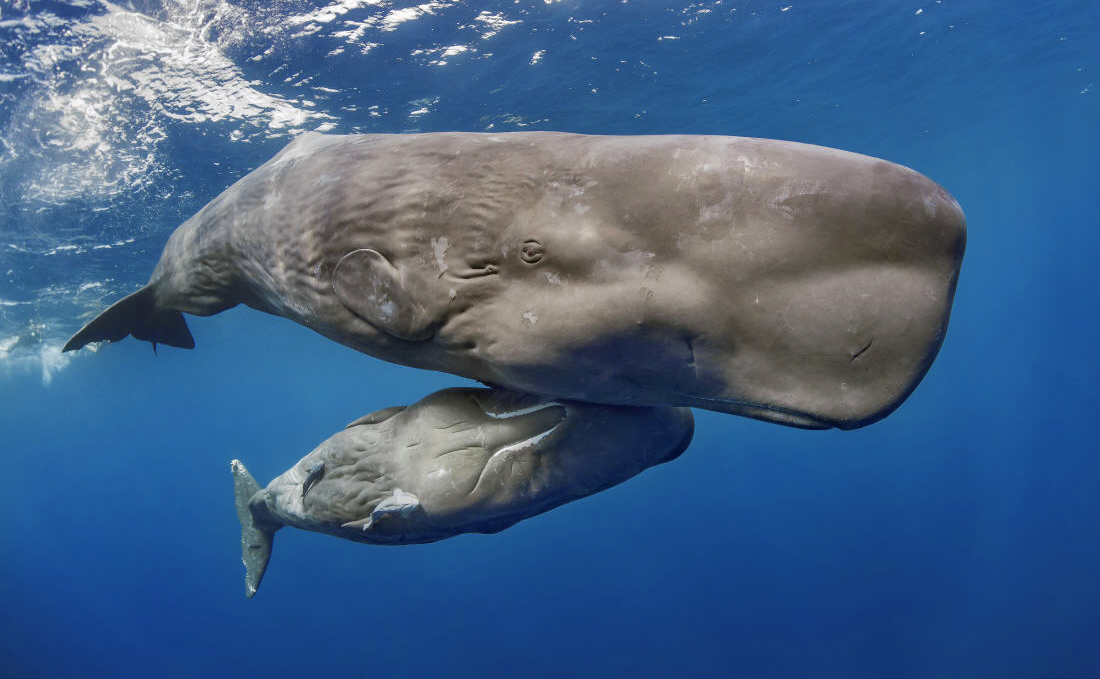
Let me show you why sperm whales are probably the coolest animals on this planet, and also my personal favourite!
1) Sperm whales are named after the white substance they produce
According to legend, in 1712, an American ship led by captain Christopher Hussey accidentally caught a sperm whale while hunting for right whales. They cut open its head and a thick, sand-colored oil oozed out. They mistook the oil for sperm and named it spermaceti (Greek sperma, “seed”; Latin cetus, “whale”). From that time forward, the sperm whale was screwed. (And not just because of its name.) Sperm whale oil turned out to be a very efficient fuel for everything, from candles to streetlights. By the 1970s, the population was decimated to 40%. Around a million of them had been killed already and still, we knew nothing about them. No one knew what they ate. They had never even been filmed underwater. Only in the ’80s, when the documentary “Whales weep not” showed sperm whales in their natural habitat for the first time, the global anti whaling movement gained support. In 1986, commercial whaling was ended. Today, we know a little more about them, but in many ways, sperm whales still remain a mystery.
2) Sperm whales can reach depths of 3000 meters
Sperm whales can dive as deep as 3000 meters and hold their breath for a staggering 90 minutes! To put this into perspective, military submarines usually operate at depths of “only” 500 meters. At those depths, sperm whales usually hunt for giant squid, an even more mysterious creature of the deep sea. So far, only 2 giant squid have ever been filmed. Sperm whales have evolved to survive under the extreme pressure. One of their most important physiological features is a flexible ribcage that allows for lung collapse and the reduced absorption of nitrogen. That’s right, even a sperm whale can’t forget about decompression sickness!
3) Sperm whales are the loudest animals on earth
At their maximum level of 236 decibels, the clicks they make are louder than the space shuttle taking off from 50 meters away. They’re so loud that they cannot be heard in air, only in water, which is dense enough to sustain such powerful noises. The noise level in air maxes out at 194 decibels. Any louder, and sound becomes distorted to the point that it turns from a sound wave into a pressure wave. The threshold of noise in water is 240 decibels. Any louder, and the noise will almost literally boil the liquid into vapor in a process called cavitation. Sperm whale clicks could not only blow out human eardrums from dozens of meters away, but, some scientists estimate, vibrate a human body to death.
4) The sperm whale’s brain is the largest brain that’s ever existed, as far as we know

The brain of a sperm whale is 6 times the size of the human brain and in many ways more complex. The lateral lemniscus, which processes sound, is 250 times the size of a human’s. The neocortex, the part of the brain that, in humans, governs higher-level functions such as conscious thought, future planning, and language, is estimated to be about 6 times larger in the sperm whale brain than it is in ours. It’s possible that whales have emotional lives not unlike our own. In 2006, researchers at New York City’s Mount Sinai School of Medicine discovered that sperm whales had spindle cells, the long and highly developed brain structures that neurologists associate with speech and feelings of compassion, love, suffering, and intuition — those things that make humans human.
5) Sperm whales are the biggest predators in the world
With adult males weighing as much as 50 tons and measuring up to 20 meters, they are truly colossal. Unlike a baleen whale, which uses a hairlike substance to filter plankton from the water, a sperm whale has about forty teeth along its lower jaw. Whalers assumed sperm whales used these teeth to attack prey, but research suggests otherwise. Examinations of dead sperm whales’ stomachs – a sperm whale has four -, show that they don’t chew their food. What good are teeth when you don’t chew your food? Some researchers, believe sperm whales use their teeth as little antennas to assist in echolocation, or even holographic communication.








